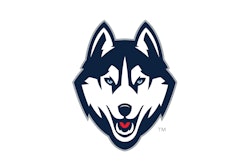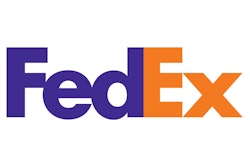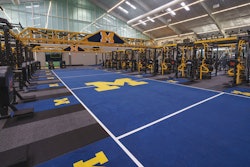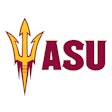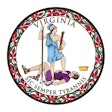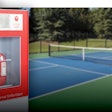Dog owners and rec agencies make great strides in establishing off-leash parks for pets.
Dave Kagan doesn't consider himself a criminal. In all likelihood, neither do the thousands of other dog owners in Grand Rapids, Mich. -- many of whom have traditionally exercised their dogs off-leash at Cambridge Park, albeit in violation of the city's leash ordinance. When Grand Rapids officials began enforcing that ordinance in earnest in 2003, Kagan and other Cambridge Park regulars found themselves on the wrong side of the law. "A number of us got ticketed -- the first offense was a $20 fine, but the second was $100," says Kagan, owner of an English setter. "I got tired of looking over my shoulder. I got tired of being criminalized. That's when a group of us kicked in to do something about it."
What Kagan and a handful of fellow dog owners did was start Grand Rapids Dog Park Enthusiasts (grdogpark.com), a community organization with the purpose, according to its web site, of helping Grand Rapids join the "ranks of progressive communities that recognize the value of dog parks in socializing our pets and strengthening our neighborhoods." In order to realize that goal, the group understood that collaboration with the Grand Rapids city government, namely the parks and recreation department, was essential.
"Our view when we started this thing was that there are all sorts of special-interest groups -- soccer players, tennis players, what have you -- who use city parks to meet their needs," says Kagan, Grand Rapids Dog Park Enthusiasts' unofficial spokesperson. "Our argument was that we're just another special-interest group that pays taxes to use the parks."
Dog owners across the country -- from California to Wisconsin to Florida, where a 4-acre dog park opened last month in Boca Raton -- are presenting similar cases to their local government officials. Last summer, the web site thedogpark.com, which maintains a nationwide directory of publicly and privately operated dog parks, estimated there were 700 such facilities. Today, some observers believe the number of parks has grown to nearly 1,000. Few parks and recreation administrators should be surprised to learn that in many communities, grassroots organizations are the driving force behind dog park proliferation.
On the surface, it seems that most of those groups simply want a public place for their dogs to exercise. In Grand Rapids, for example, the alternative to risking an off-leash fine at Cambridge Park has been a visit to a privately run dog park in a southeastern suburb. The cost to use this facility: $18 per day or $280 for an unlimited-use annual pass. "Even people who are willing to pay $280 have to make a fairly good-sized haul to get there from most parts of the city," says Kagan. "Most people want to exercise their dogs after work. You're talking about a half-hour drive there and back."
In addition to cost and convenience, pet owners look to dog parks to provide a sense of community. "These parks aren't just for socialization of dogs. They have social benefits for us, too," says Kagan. "At our public meetings, one gets the sense that a lot of our supporters are women who may not want to go to bars to meet people. At a dog park, they can meet people in a relatively safe environment."
It's becoming more apparent to parks and recreation officials that by serving this previously underrepresented demographic, they also have an opportunity to open yet another revenue stream. A 20-acre dog park currently being developed by Milwaukee County Parks will operate on a permit system, similar to one used in nearby Dane County -- which, by several accounts, has one of the most successful public dog park networks in the country. Park users there can either pay each time they visit ($3) or purchase an annual pass for $20. "Here in Milwaukee County, we actually lose money on our golf courses," says Robin Barry, co-chair of Residents for Off-leash Milwaukee Parks (ROMP), which has worked with the county for more than three years to establish a dog park. "[Milwaukee County Parks superintendent] Sue Black thought that this may be an untapped market and that we could actually make some money off this thing."
Barry gives a lot of credit to Black and her positive attitude for turning ROMP's dog park dream into a reality. Milwaukee County Parks' cooperative spirit of the past two years comes in sharp contrast to the year prior, during which that agency and ROMP rarely saw eye to eye. "When we first started working with County Parks three years ago, we had to do everything ourselves," says Barry. "They said they would just give us the land, but we would have to do everything else -- benchmark other dog parks across the country, research site selection, do fundraising, take care of maintenance."
Fortunately for ROMP, says Barry, Milwaukee County Executive Scott Walker "cleaned house" in late 2003, firing the parks department's top five officials. The introduction of Black as the new county parks superintendent -- a person who, according to Barry, "is progressive and comes from an area with successful dog parks" -- jump-started the project.
Contributing significantly to that positive momentum was the willingness of Milwaukee County Parks to assign park planning and development tasks more equitably. ROMP is still responsible for researching standard practices of dog park operations, including devising a park-use policy and a public education program to teach pet owners dog park etiquette and non-pet owners about the benefits of dog parks. But the county put forth the significant financial contribution of $90,000, most of which will be used to pay for the installation of the park's gates and perimeter fencing.
Because the dog park site is near Milwaukee's General Mitchell International Airport, the Federal Aviation Administration must also sign off on the project. But Barry is optimistic that the FAA will provide that approval, allowing fence installation to begin within the next few months. "By this summer, we'll have a dog park," she says.
Grand Rapids' dog park project is on a similar schedule. Having completed its fundraising in an astonishing three-month period ending last November (thanks in large part to a $15,000 naming-rights deal with a local pet store chain), Grand Rapids Dog Park Enthusiasts can hardly wait to let their canine companions run free, legally, in the Pet Supplies Plus Dog Exercise Area at Hillcrest Park. Barring any construction delays due to winter weather, the park is slated to open next month.
Looking back, Grand Rapids Parks & Recreation director Jay Steffen is glad the dog park group opened his eyes to the perceived need for dog parks among city residents. "It was good they brought this to our attention," he says. "We're not always able to meet the needs of all user groups. For example, we haven't been able to locate funds for skate parks. But if that group came to us, we would work together to find a solution."
According to both Kagan and Steffen, the two-year partnership has been a pleasant one. Nevertheless, the project has had to clear its fair share of hurdles -- including the revelation last spring that the city of Grand Rapids would have to renege on its initial pledge to fund the proposed $25,000 park because of a budget crisis.
The collaboration soldiered on anyway, with the dog park group stepping in to raise the necessary funds. "We went back to the city and said, `If you leave the land previously allocated for the dog park on the table, we'll raise the funds,' " says Kagan, who, in retrospect, admits that at the time even he was unsure his group could accomplish such a daunting task. "The city said, `OK.' Then it became a situation of be careful what you wish for."
Fundraising turned out to be easier than Kagan imagined, so much so that the group actually surpassed its goal by $3,000. In addition to the naming-rights deal with Pet Supplies Plus, large donations came in from other companies like Bissell Inc., the Gerber Foundation and several local businesses, and more than 150 individuals gave anywhere from $5 to $5,000.
Meanwhile, the city kept its word and allocated a 1-acre section of an existing park for exclusive use as a dog exercise area. The Grand Rapids Parks & Recreation Department volunteered the services of its own labor force to install the park's fencing, as well as mow its grass in the spring and summer seasons and plow the parking lot in the winter.
"This has been a really gratifying effort between local citizens, businesses and city government," says Kagan, who already has his sights set on future collaborations between Grand Rapids dog owners and the city's recreation department. "Getting the first project off the ground is always the tough thing. Our hope is that there will be an outcry in other areas of the city, and that we can establish regional dog parks."














